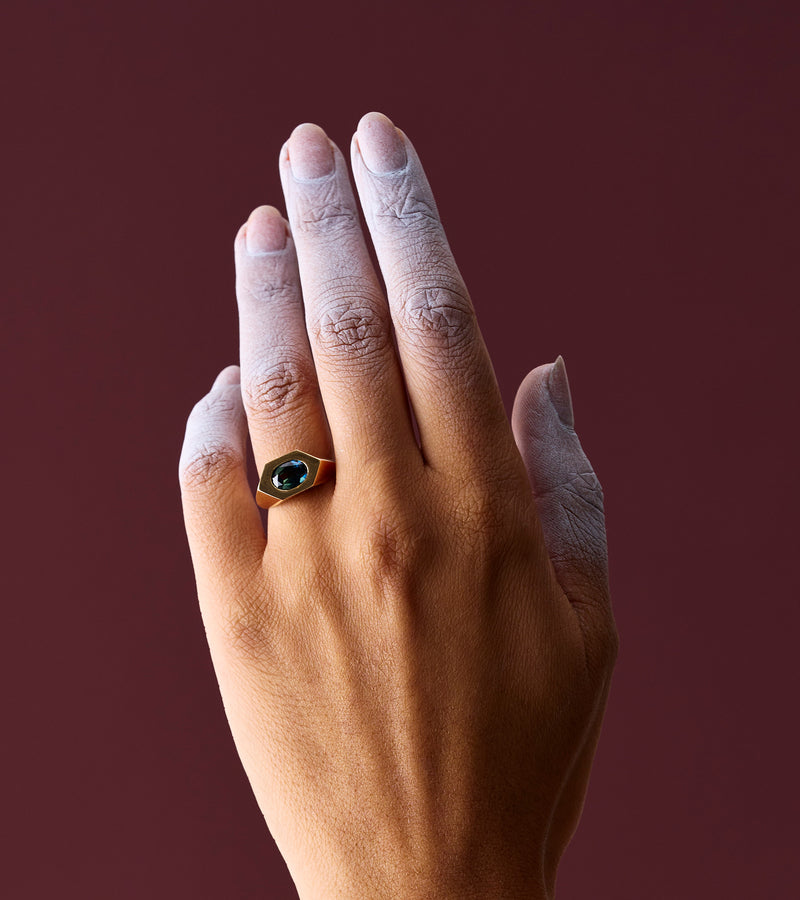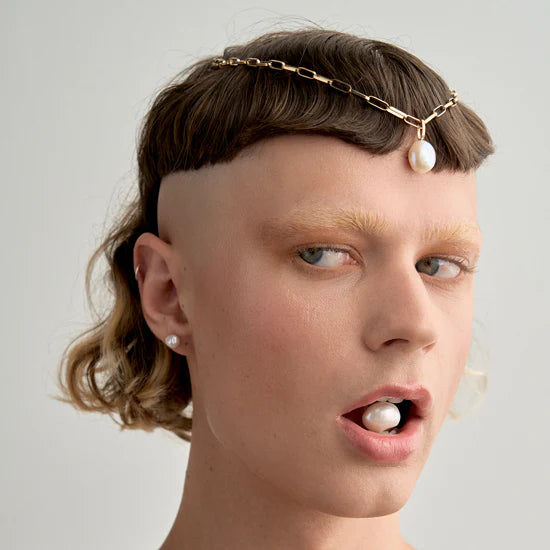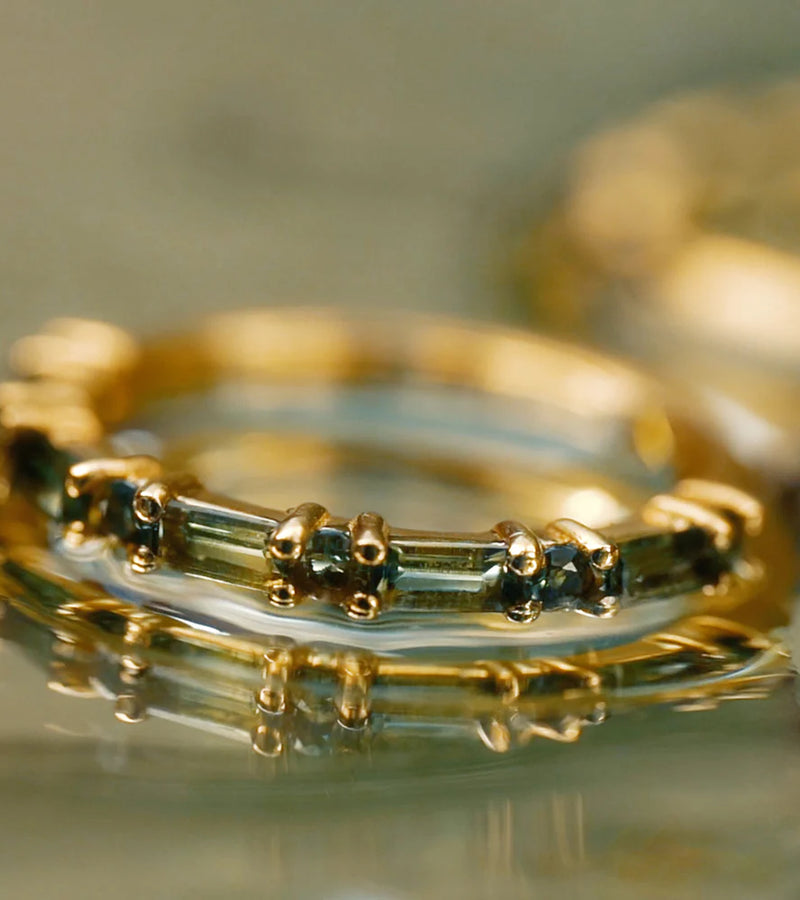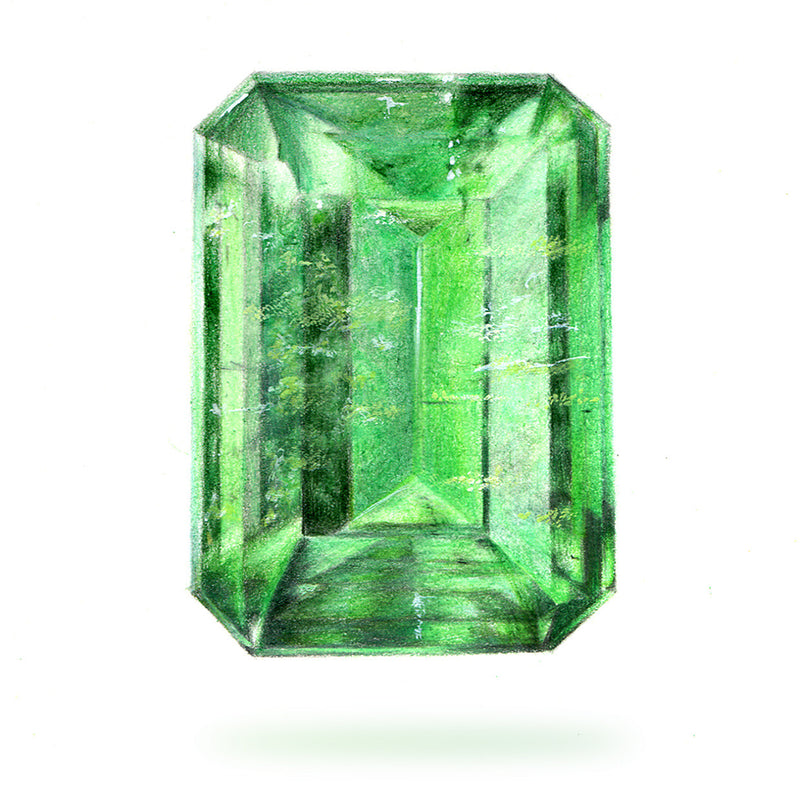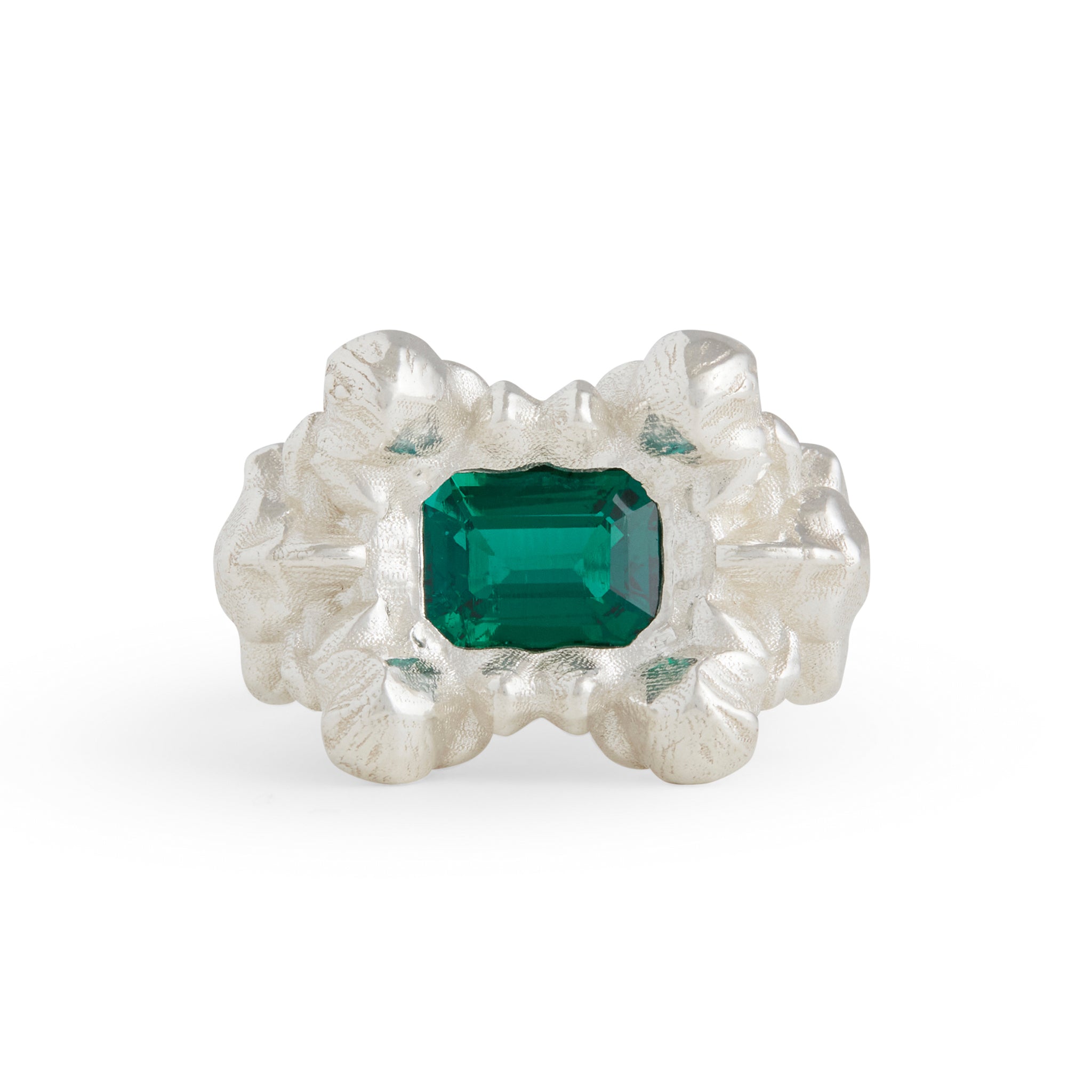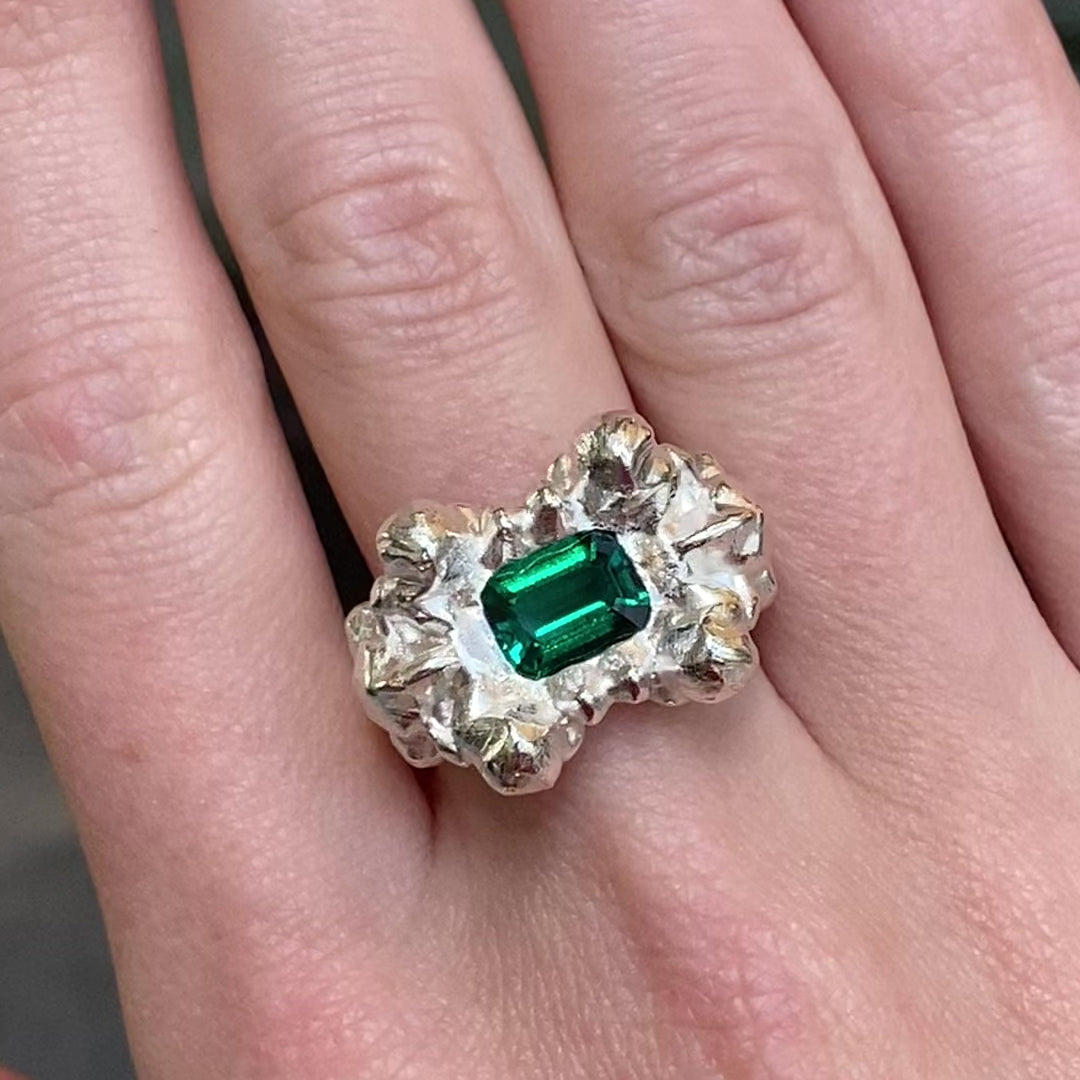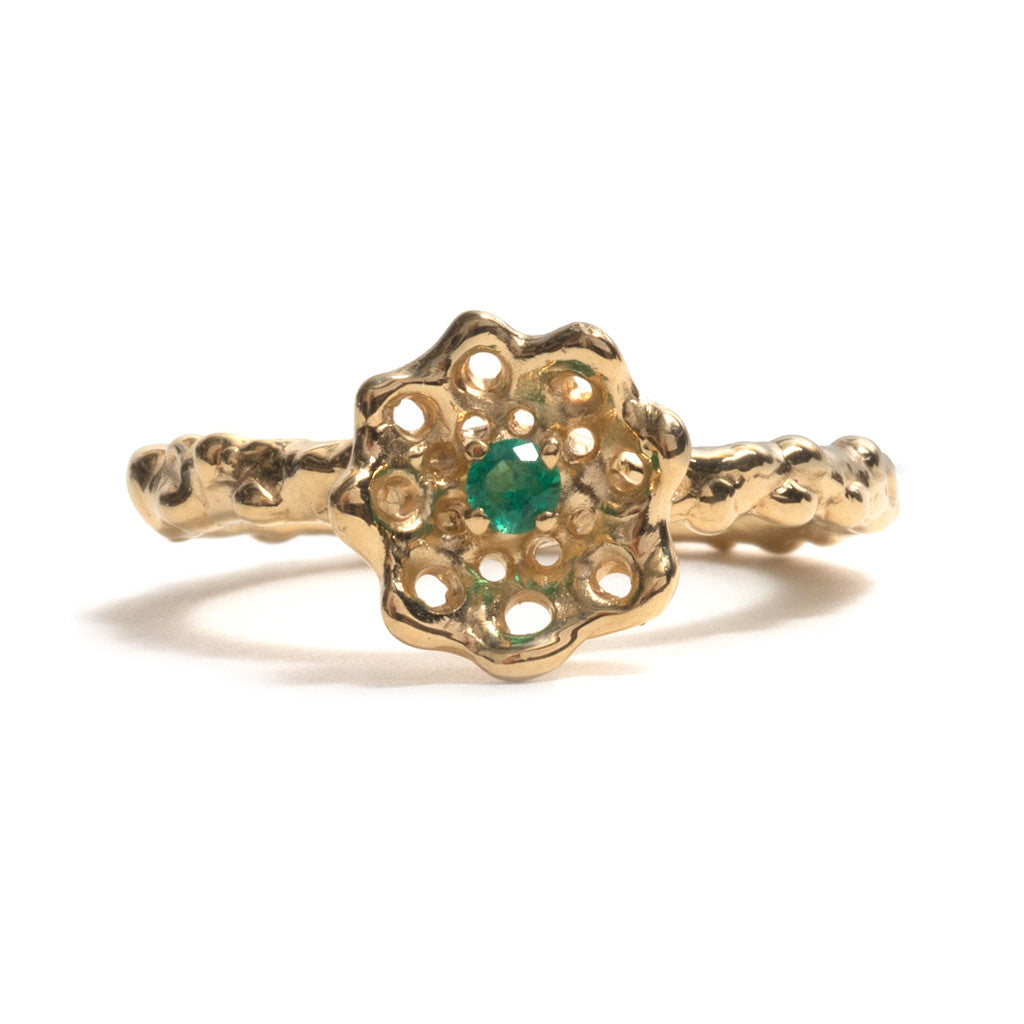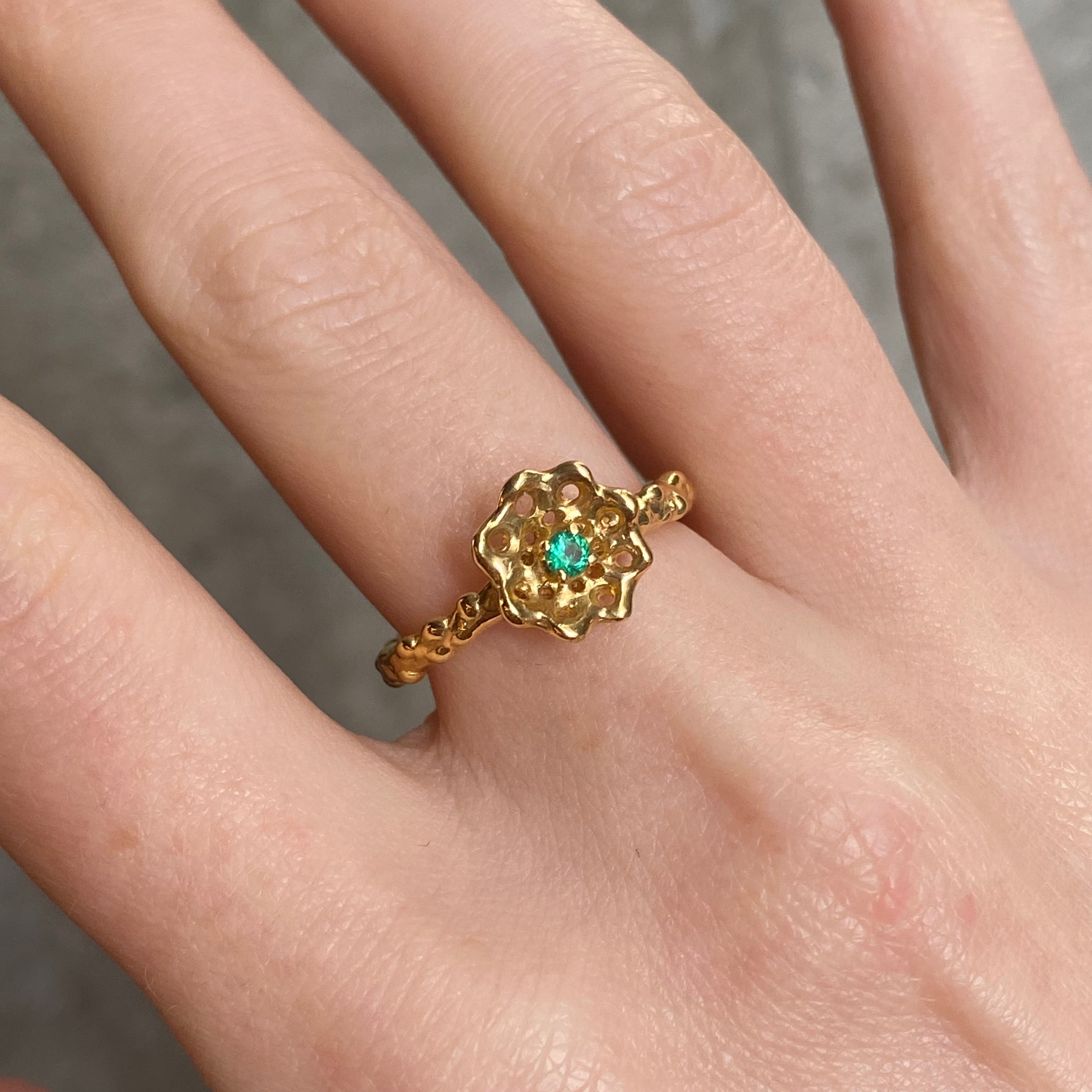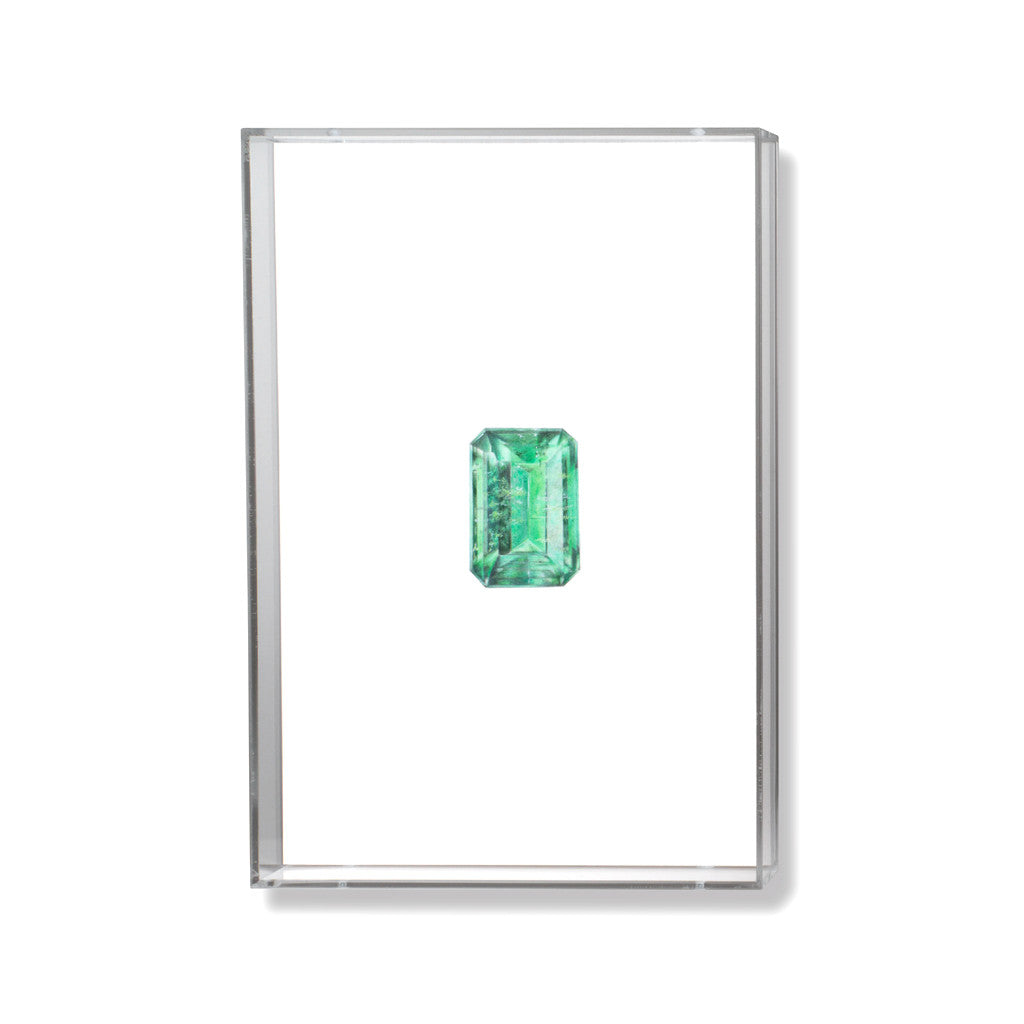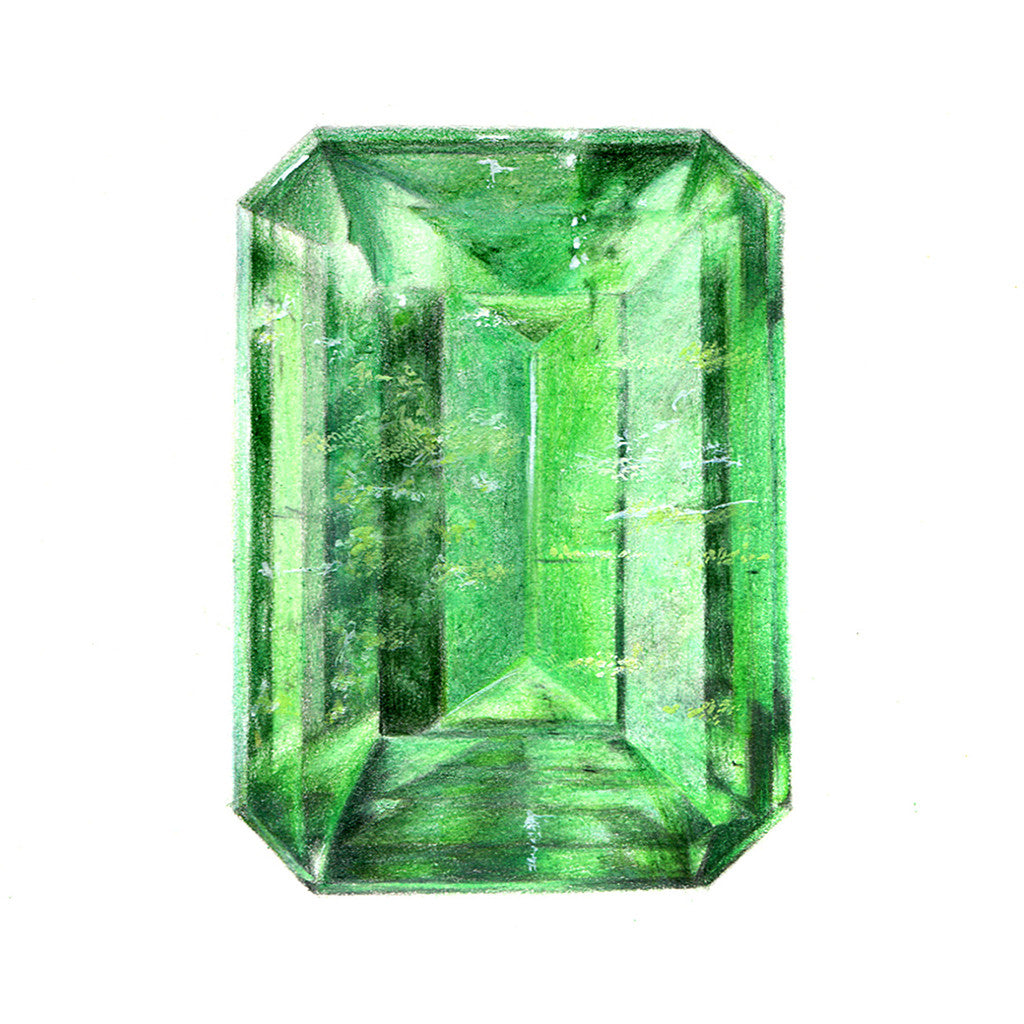The emerald is a gemstone much prized for it's brilliant green colour. Its long history goes back to ancient Egypt where emerald mines were being explored as early as 3500 BC. It is known as a symbol of rebirth and has been said to grant its owner foresight, good fortune and youth. While emeralds are found all over the world, including Colombia, Brazil, Afghanistan and Zambia, the supply of high quality gem grade emerald is very limited and commands high prices.
- Mineral/Beryl
- Colour/Vibrant green
- Moh's Hardness/7.5 - 8
- Birthstone/May
- Anniversary/20th & 35th
GRADING
The colour of an emerald is one of its most respected characteristics. Generally the deeper the colour, the higher its value, and a blue-green or pure green is the most prized. Many emeralds are heat treated to enhance their colour. In terms of clarity, most emeralds have visible inclusions which are accepted as a natural characteristic of the gem. The more transparent the emerald, the more rare and valuable the stone.
The emerald cut is the most popular cut, due to the six sided shape of the raw emerald crystal, (which is beryl; the same as aquamarine). However, this gem can be cut in various shapes to best maximise the original rough material. The higher the carat, and thus larger the size, the more valuable the gem.
HISTORY
Geologically speaking, the oldest emeralds are aged at 2.97 billion years old. In the 1st century AD, Pliny the Elder described emeralds in his Natural History as “...nothing greens greener”. Famous places are named using the word emerald to describe their colour, like the Emerald Isle in Scotland and the Emerald Buddha in Thailand, even though it is made of jade.
Cleopatra owned all the emerald mines in ancient Egypt and the stones were used for protection, status and trade. By the time these mines were again discovered in the 19th century the supply had been exhausted. In Colombia, both the Incas and Aztecs used emeralds, and the Muzo Indians had a hidden network of highly prized emerald mines which they managed to hide from the Spanish conquistadors for twenty years after their arrival in the 16th century.
The Spanish traded these gems for gold and silver, and started to expand the interest and trade of emeralds across Europe and into Asia. In folklore, emeralds are said to provide the ability to see the future when placed under the tongue as well as reveal truths and protect against evil spirits. To wear an emerald was also believed to reveal if a lover’s oath was true or not, and had the capacity to make someone an eloquent speaker while warding off panic, bringing calm and well being.
CARE
Emerald is 7.5 to 8 on the Moh's scale and has fair to good toughness, but it is a stone that requires more care in wearing than ruby, sapphire or diamond. Even so, emeralds are suitable stones for all types of jewellery and with proper care will last for generations. It is important to note that since around 90% of emeralds are enhanced by filling their fractures with polymers and oils, it’s risky to clean them with ultrasonics or steam. Instead, use warm soapy water and gently scrub with a soft toothbrush or use a soft cloth.



